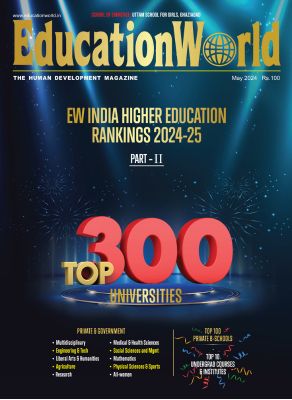Undoubtedly the sweeping victory of the three-party mahagathbandhan Grand Alliance (JDU, RJD and Congress) in the Bihar legislative assembly election whose result was announced on November 8, has come as a relief to the long-suffering people of Bihar (pop.104 million). Its ancient glories notwithstanding, by common consensus Bihar is the most backward — per capita income: Rs.16,801 per annum (cf. India’s Rs.74,193); adult literacy: 64 percent (74 percent); and infant mortality 34 deaths per 1,000 children (24) — state of the Indian Union.
The state’s depressing socio-economic indicators apart, Bihar also has a reputation for rampant lawlessness with a mere 67 police personnel per 100,000 population (cf. the India average of 138). Law and order problems would have multiplied if the BJP-led NDA coalition, which fought the election on a blatantly majoritarian, hindutva and anti-Muslim platform, had been voted to power in Patna, the capital of Bihar.
In this context, it needs to be noted that in addition to its manifold problems of socio-economic backwardness and law and order, Bihar, which has a Muslim population of 20 million, is also deeply riven with caste and communal tension and conflicts. Indeed, it’s arguable that north India’s revolt against the traditional oppression of the Dalits by the upper castes began in Bihar in the 1970s, when socialist followers of Dr. Ram Manohar Lohia (1910-1967) installed the late Karpoori Thakur as the state’s first backward caste chief minister.
Since then caste has been a major rallying point of all political parties that have dominated Bihar politics. And there’s no denying that Bihar’s political parties, particularly the JDU led by newly-elected chief minister Nitish Kumar and the RJD headed by former chief minister Lalu Prasad Yadav, have substantially raised the pride and status of OBCs (and Dalits) in the state by enabling them to access education and secure jobs in government and public sector enterprises.
However, the assertion of OBC pride hasn’t been achieved entirely by lawful and constitutionally correct means. In the process, the OBC governments of Bihar and especially the Lalu Prasad-led RJD (1990-2005) often used strong-arm tactics and converted the police to their own use, resulting in a total breakdown of law and order in the state and ushering in a period described as ‘jungle raj’ during which the politics of redistribution eclipsed economic growth and advancement. Now unfortunately, although the Grand Alliance has swept the assembly election, the largest party within the winning collation is Lalu’s RJD, still steeped in the caste morass, which is at odds with Nitish Kumar’s development agenda.
Thus, there’s a strong possibility of infighting within the JDU and RJD which could paralyse the new government and resurrect jungle raj within the state. Plagued by mass illiteracy and backwardness, Bihar’s electorate was obliged to choose between the lesser evil of BJP communalism and JDU/RJD casteism.
HRD Ministry’s Reckless Interference
There’s growing disquiet within the academic community over the reckless manner in which the Union human resource development (HRD) ministry led by former television soaps star Smriti Irani is interfering with, and undermining the autonomy of the country’s few surviving institutions of education excellence. Last month, the ministry sparked a national outcry by issuing a directive to the country’s premier Indian Institute of Technology (IIT)-Delhi — one of two Indian institutions to make it into the QS Top 200 World University Rankings 2015 — to review its decision to reject the admission of a Ph D student who had submitted incorrect information about her work experience. Last December, the institute’s director R.K. Shevgaonkar put in his papers following intense pressure from the HRD ministry to permit the establishment of a Sachin Tendulkar cricket academy on the IIT-D campus. Earlier this year, nuclear scientist Anil Kakodkar too quit his position as chairman of the board of governors of IIT-Bombay, citing interference from the HRD ministry.
Not satisfied with these attempts to assert its authority over the country’s prestigious IITs and IIMs — islands of excellence in a sea of academic mediocrity — the Union HRD ministry has now expanded its ambit to target K-12 education. In end October, the ministry wrote to the premier Delhi-based Council for the Indian School Certificate Examinations (CISCE), which has 1,900 of the country’s top-ranked private schools affiliated with it, to submit documentation proving government approval of its memorandum of association and rules and regulations.
Unlike its rival Central Board of Secondary Education (CBSE) which is directly supervised by the HRD ministry, CISCE, which has been conducting class X and XII board examinations since 1967, is substantially autonomous, and is the preferred affiliating board of most Christian missionary schools. With the BJP-led NDA government at the Centre deeply influenced by the Hindu right-wing Rashtriya Swayamsevak Sangh (RSS) — the ideological parent of the BJP — and committed to resuming the unfinished saffronisation of Indian education started by the previous NDA government (1999-2004), the HRD ministry’s targeting of CISCE is tantamount to blatant, unwarranted interference.
Instead of arguing within the cabinet for a higher outlay for public education, upgrading the crumbling infrastructure of government schools, improving teacher-pupil ratios and rock-bottom learning outcomes, and contemporising curriculums in India’s higher education institutions, the HRD minister’s ham-fisted interference with the few surviving institutions of education excellence is harming contemporary India’s already floundering education system. Quite clearly, in the reportedly imminent cabinet reshuffle Irani needs to be moved to new pastures.




























